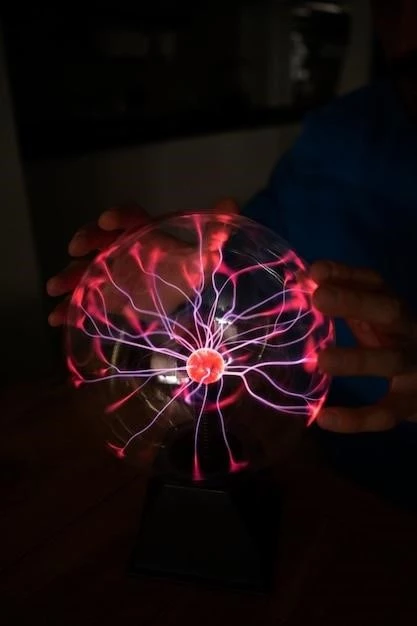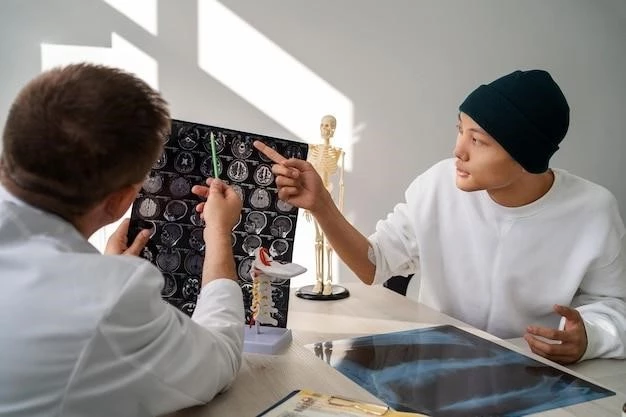Article Plan⁚ Disease ー Myoclonus Epilepsy Partial Seizure
Myoclonus epilepsy partial seizure is a complex condition that manifests in various types of seizures like febrile, myoclonic, and partial seizures. Understanding conditions like Epilepsia Partialis Continua and Progressive Myoclonic Epilepsy Syndromes is crucial in managing this disease. Treatment options encompass anti-seizure medications, nerve stimulation, dietary therapy, and surgery tailored to individual needs.
Myoclonus epilepsy partial seizure is a complex condition involving various seizure types like febrile, partial, and myoclonic seizures. Epilepsia Partialis Continua is a rare form of the disorder characterized by continuous focal seizures. Understanding the pathophysiology and manifestations of these seizures is crucial. Treatment includes anti-seizure medications, nerve stimulation, dietary therapy, and surgery tailored to each individual’s needs.
Types of Seizures Associated with Myoclonus Epilepsy
The different types of seizures associated with myoclonus epilepsy include febrile seizures, partial seizures, myoclonic seizures, hot water-induced seizures, and drug-resistant seizures. Understanding the characteristics and differences between these seizure types is vital for proper diagnosis and treatment planning. Each type may require specific management strategies tailored to the individual’s needs.
Febrile Seizures and Myoclonic Seizures
Febrile seizures present with characteristics like hemiconvulsions, partial seizures, myoclonic seizures, and hot water-induced seizures. Understanding the distinctions between these types of seizures is crucial for accurate diagnosis and treatment planning. Myoclonic seizures, characterized by brief jerking movements, often occur in clusters and may be triggered by various factors. Learning to recognize and respond to these different seizure types is paramount for effective management.
Epilepsia Partialis Continua⁚ Characteristics and Pathophysiology
Epilepsia Partialis Continua (EPC) is a rare brain disorder characterized by recurrent focal onset seizures that can last for hours, days, or even years with retained awareness. The pathophysiology of EPC is complex. It can present in various forms such as myoclonic epilepsy and localized myoclonus. Understanding the distinct characteristics and underlying mechanisms of EPC is essential for accurate diagnosis and tailored treatment strategies.
Progressive Myoclonic Epilepsy Syndromes
Progressive myoclonic epilepsy syndromes encompass a group of rare disorders characterized by myoclonic epilepsy, generalized tonic-clonic seizures, progressive ataxia, and dementia. These syndromes typically worsen over time and can lead to significant challenges. Understanding the progression and interplay of symptoms in these syndromes is crucial for effective management and tailored treatment approaches.
Eyelid Myoclonia in Epilepsy⁚ Jeavons Syndrome
Eyelid myoclonia with or without absence seizures, known as Jeavons Syndrome, is a rare form of generalized epilepsy. It is characterized by brief, repeated myoclonic jerks of the eyelids, often accompanied by absence seizures. Recognizing the distinctive features of Jeavons Syndrome is essential for accurate diagnosis and appropriate management strategies tailored to the individual’s needs.
Myoclonic Seizures⁚ Causes and Symptoms

Myoclonic seizures are characterized by sudden, brief muscle contractions leading to jerking movements. These seizures can occur in different parts of the body and may present as isolated events or in clusters. Common causes of myoclonic seizures include epilepsy, brain injuries, metabolic disorders, and genetic factors. Symptoms can vary depending on the type of myoclonic seizure, ranging from mild muscle twitches to more intense, generalized jerking motions. Proper diagnosis by a healthcare professional is crucial for determining the underlying cause of myoclonic seizures and developing an appropriate treatment plan.
Treatment Options for Myoclonus Epilepsy Partial Seizure
When dealing with myoclonus epilepsy partial seizure, treatment options vary depending on the type and severity of seizures. Common approaches include anti-seizure medications to control and prevent seizures, nerve stimulation techniques like Vagus Nerve Stimulation (VNS) or responsive neurostimulation, dietary therapies such as the ketogenic diet, and in certain cases, surgery like corpus callosotomy or focal resection to remove the seizure-producing brain tissue. It is crucial to work closely with healthcare professionals to determine the most suitable treatment plan tailored to individual needs and lifestyle.
Myoclonic Seizures in Neonates and Children
Myoclonic seizures in neonates and children are characterized by sudden, brief muscle jerks that can affect various body parts. These seizures may be caused by a range of factors, including neurological disorders, metabolic disturbances, or genetic predisposition. Timely recognition and proper management of myoclonic seizures in neonates and children are essential to ensure proper neurological development and well-being.
Progressive Myoclonic Epilepsies (PME) Overview
Progressive myoclonic epilepsies (PME) encompass a group of rare disorders characterized by myoclonic seizures, generalized tonic-clonic seizures, progressive ataxia, and dementia. These syndromes typically progress over time, leading to challenges in motor skills, balance, and cognitive function. Early diagnosis and a comprehensive treatment plan are essential to manage the symptoms effectively and enhance the quality of life for individuals with PME.
Myoclonus vs. Tics⁚ Understanding the Difference
It is essential to differentiate between myoclonus and tics as they present distinct characteristics. While myoclonus involves sudden, brief muscle contractions causing jerking movements, tics are repetitive, involuntary movements or vocalizations. Understanding these differences is crucial for accurate diagnosis and appropriate management strategies. Consulting a healthcare professional for proper evaluation and guidance is advised for individuals experiencing these symptoms.
Diagnosis and Management of Myoclonic Epilepsy
Diagnosing myoclonic epilepsy involves comprehensive evaluations like EEG tests, brain imaging scans, and a detailed medical history review to determine the underlying cause of seizures and their classification. Once diagnosed, management strategies may include anti-seizure medications, lifestyle modifications, seizure diaries, and regular follow-up appointments with healthcare providers. It’s essential to adhere to the prescribed treatment plan and attend regular check-ups for optimal seizure control and overall well-being.
Current Research and Development in Myoclonic Seizure Medications

Research and development in myoclonic seizure medications focus on advancing treatment options for individuals with myoclonus epilepsy partial seizure. Ongoing studies explore the efficacy of novel anti-seizure medications, nerve stimulation techniques, and precision medicine approaches tailored to individual responses and genetic factors. Stay updated on the latest advancements in myoclonic seizure medications to benefit from emerging treatment strategies and improved seizure management.
